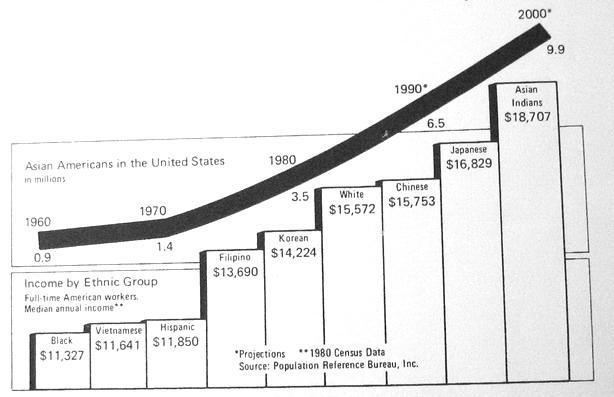
- •С. Vocabulary
- •E. Word Analysis Part 1
- •2. Complete the sentences with one of the above words
- •3. Write the meaning of the boldfaced word on the line.
- •Look Back a. Vocabulary
- •Racial Issues
- •Section 1 a First Look
- •D. Scanning/Vocabulary Part 1
- •Look Again a. Vocabulary
- •Contact a Point of View
- •Section 4 Look Back a. Vocabulary
D. Scanning/Vocabulary Part 1
Write the line number where you find the word(s). Then choose the best meaning for the word as it is used in that sentence.
1. ironically
a. strangely b. naturally с obviously
2. succeeding
a. coming before b. successful c. following
3. excluded
a. prevented b. prejudiced с adjusted
4. heritage
a. property b. cultural past с. work
5. protection
a. conflict b. involvement с safety
6. majority
a. a large number b. some с most
7. associated with
a. compared to b. connected with с. qualified for
8. attempt
a. gain b. guarantee с effort
9. qualified
a. capable b. hired с ambitious
10. reverse
a. opposite b. done again с prevented
Part 2
Find a word that is the opposite of the one given. The line is given.
line 3 new
line 8 fair
line 9 benefits
line 10 free people
line 23 hidden
line 32 unlawful
line 33 mixed by race
line 36 fairness
line 43 inexperienced
E. Reading Comprehension
Circle the letter of the choice that best completes each sentence.
1. Because of _____, blacks could not easily mix in American society. a.) skin color b. language с heritage
 2.
Special
restrooms and water fountains for blacks were more common in _____
a.
the North b.
ghettos c.
the
South
2.
Special
restrooms and water fountains for blacks were more common in _____
a.
the North b.
ghettos c.
the
South
3. ______is one attempt to equalize education.
a. Reverse discrimination b. White flight c. Busing
4. Blacks were different from other groups because they ______.
a. came with the first settlers b. adapted easily c. did not have support groups
5. There _______ discrimination in the North.
a. was b. wasn't c. was no
6. According to the author, there will be a solution to racial problems _____
a. in the future b. very soon с because of the 1950s
7. Affirmative action is most beneficial for _____.
a. minorities b. business с qualified people
8. In the North, discrimination was _____ to see.
a. easier b. more difficult с less difficult
9. The author thinks that prejudice and discrimination _____ in the United States.
a. are natural b. are the same for all groups c. form part of history
10. The author thinks that prejudice is ironic here because the US is a country of _.
a. wealth b. Immigrants с established groups
Look Again a. Vocabulary
Circle the letter of the choice that best completes each sentence.
1. I love to eat; , I hate to cook.
a. ironically b. naturally c. financially
2. One of city living is the high cost.
a. advantage b. benefit c. disadvantage
3. He was _ from the club because of his religious beliefs.
a. participated b. excluded c. designated
4. Whites in the United States are the _________.
a. minority b. majority c. newcomers
5. The cruel ______of slaves in the United States is difficult to believe.
a. treatment b. protection c. heritage
6. Although she didn't like him, he _____ in calling her.
a. associated b. persisted c. designated
7. Busing is a(n) to equalize educational opportunities.
a. loss b. attempt c. participation
8. ____ public schools are not legal.
a. Integrated b. Associated c. Segregated
9. He is ______ to teach economics.
a. adequate b. qualified c. obvious
10. _______discrimination is clear and easy to see. a. Reverse b. Blatant c. Unjust
В. Reading Comprehension
Compare blacks to other groups who came to the U.S. Give two examples of disadvantages which they had.
Give two examples of discrimination against blacks.
Reread the information about equality in education and try to explain what busing means.
Affirmative action means that organizations try to fill jobs with minorities. Why do you think people should do this?
C. Think About It
1. Is there discrimination in your country? Is it racial? Social? Or sexual? What kind of discrimination takes place? Employment? Housing? Education?

The two graphs shown above are from an article about Asian Americans.
1. a. What does the "Asian Americans in the United States" graph measure?
b. For how many years?
2. a. What does "Income by Ethnic Group" measure?
b. Which ethnic group earns the most?
c. Which ethnic group earns the least?
d. What is the dollar difference between the highest earning Asian group and the lowest earning Asian group?
e. How do Hispanics compare to the other ethnic groups?
f. What reasons can you think of to explain the differences in income?
